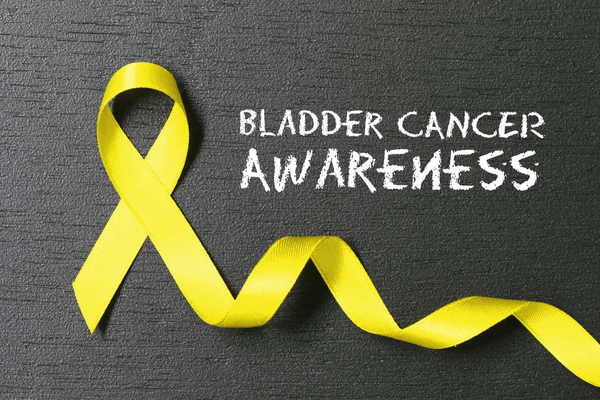Bladder concerns can be extremely uncomfortable, and even embarrassing at times. Depending on the condition, it can range in severity, and affect men, women, and children of all ages. If you have problems passing urine or have the frequent urge to visit the bathroom, you may need to consider visiting your local doctor for a check-up. Experiencing abdominal pain—especially whilst urinating—and losing partial or complete control over your pelvic muscles may also signify a bladder-related issue, and requires medical attention.
Incontinence
Incontinence refers to the involuntary leakage of urine and feces, usually due to weakened pelvic muscles. It has been estimated to affect approximately 300 people globally, of varying ages. The condition is a bladder concern that usually categorized into stress, urge, overflow, functional, reflex, and mixed. Each form affects individuals differently, and they are caused by a diverse range of factors, including:
- Pregnancy and childbirth
- Menopause
- Prostate Cancer
- Spinal cord injuries
- Neurological diseases
- Other underlying conditions/illnesses
Pregnant women, for example, may be largely at risk of stress and urge urination, both before and after birth. Stress urination is often associated with light, occasional leakage when additional pressure is placed onto the bladder, as explored by knix. Jumping up and down or simply laughing a little too hard may cause such pressure, and lead to a loss of urine. Urge urination refers to the sudden need to use the bathroom due to involuntary muscle contractions. Whilst it may affect all kinds of people, individuals whose neurological pathways have been damaged, and therefore cannot receive signals from the brain, may be more likely to suffer from this type.
Women are suggested to be the most-affected by incontinence, but men also fall victim. Overflow incontinence, for example, is associated with a constant dribble of urine due to a blockage in the urinary tract. While some women may experience a form of this, it’s widely associated with men who have enlarged prostate problems.
See Also: How Fertility Is Affected by Stress and How You Can Combat It

Bladder cancer
Bladder cancer is a lot more common than one would hope, with up to 83,730 new cases this year in America alone. 90% of suffering individuals are likely to be aged over 55 years, and though it affects both men and women, men are 3 to 4 times more vulnerable. It consists of tumor cells growing at uncontrollable levels, sometimes confined to the inner lining of the bladder, and at other times piercing through muscles and the bladder wall.
Symptoms of bladder cancer may include:
- Bloodied urine
- Frequent urination (daytime and nighttime)
- Abdominal pain
- Burning sensations while urinating
- Inability to empty bladder
Whilst some contributing factors are genetic or age-related, there are a few preventative measures that people can take. One of the most obvious of these is reducing or completely eliminating cigarette, tobacco, and alcohol consumption. Smokers are apparently 3 times more likely to get bladder cancer than those who don’t smoke. Working in an industry requiring the handling of dangerous materials may also not seem like a big deal at the time; however, minimizing exposure where possible by wearing protective gear, or following strict health and safety guidelines, may significantly aid you in the long run.

Urinary Tract Infections (UTI)
Urinary tract infections are very common bladder concerns—especially amongst women, who are 30 times more prone to it than men. A UTI can occur if the infection enters the urinary system, whether the kidneys, bladder, uterus, or urethra. Bladder infections can often affect individuals with low-functioning immune systems, and can either come about quickly (acute) or reoccur for long periods of time (chronic).
Cystitis is the most common bladder UTI, especially for women, and can occur when bacteria infect the urine within the urethra and inflame the bladder. If left unmanaged, this bladder concern can lead to severe kidney problems. Common risk factors may include simply being sexually active, experiencing hormonal shifts during pregnancy, or reaching that time of your life when the hot flushes and mood swings begin. Women are known for being most at risk, but aging individuals who struggle to completely empty their bowel, use bladder catheters, or suffer from enlarged prostates, are also at a higher risk than average. It is therefore important to take the necessary steps to understand and prevent urinary tract infections.
Symptoms of cystitis include:
- Frequent desire to urinate
- Burning sensations
- Intense-smelling urine
- Abdominal discomfort
- Abdominal pressure
- Fevers
- Bloodied urine
- General soreness
Final thoughts
In order to avoid bladder concerns, whether temporary or severe, it’s important to pick up on the signs and to understand the various forms of bladder conditions. Incontinence, bladder cancer, and urinary tract infections are extremely common, and shouldn’t be ignored. While they can vary, and be brought about or dependent upon factors out of your control, some forms may be managed and eased to an extent. It’s essential to contact your doctor if you’ve experienced any of the above-mentioned symptoms, and to educate yourself as well as possible.
Read Also:
How to Survive Infidelity in a Fresh Marriage?
The Amazing Things Daisy Fuentes Does for Charities & Other Organizations
All Known Girlfriends of The Singer Mario


